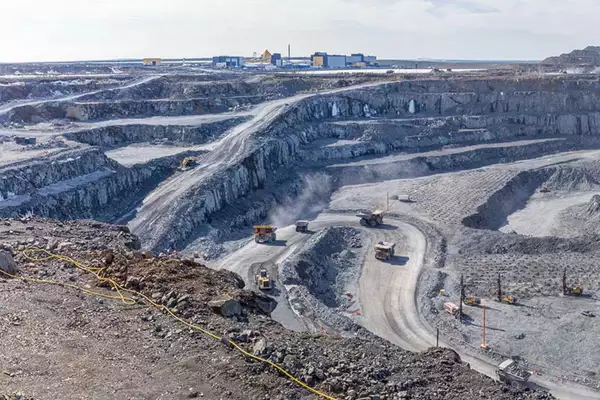India has formally become a part of the US-led Minerals Security Finance Network (MSFN), aimed at securing supply chains for critical minerals. The announcement was made during the United Nations General Assembly.
About Minerals Security Finance Network (MSFN)
- MSFN: A new initiative stemming from the Minerals Security Partnership (MSP), established by the US in 2022.
- Objective: To reduce dependency on a few countries, particularly China, and ensure diverse, secure, and sustainable supply chains for critical minerals.
- India’s Induction: India joined the MSP in 2023 and is now part of the MSFN.
- Members: The MSFN includes 14 countries and the European Union, working together to secure critical mineral supply chains.
Objectives of MSFN:
- Strengthening cooperation, promoting information exchange, and co-financing among member nations.
- Advancing diverse, secure, and sustainable supply chains for critical minerals.
- Mobilizing private sector capital in projects related to mineral production, extraction, processing, recycling, and recovery.
Key Features of MSFN:
- Cooperation Between DFIs and ECAs: Development finance institutions (DFIs) and export credit agencies (ECAs) from participating nations collaborate to meet the global demand for critical minerals.
- Private and Public Sector Collaboration: The partnership encourages synergy between private and public sectors to deploy capital into new and existing critical mineral markets.
- Supply Chain Resilience: Focus on enhancing the resilience of supply chains for critical minerals like cobalt, lithium, nickel, and rare earth elements.
About Minerals Security Partnership (MSP)
- It is a collaboration between 14 countries and the European Union aimed at catalyzing public and private investment in responsible critical mineral supply chains.
- India’s Membership: India joined MSP in 2023.
- Focus Areas: The MSP concentrates on minerals essential for clean energy technologies, such as- Lithium, cobalt, nickel, manganese, graphite, rare earth elements, and copper.
Critical Minerals and Their Importance:
- Economic Growth: Cobalt, nickel, and lithium are crucial for industries like telecommunications and electric vehicle (EV) battery manufacturing.
- Clean Energy: These minerals are vital for green technologies, including semiconductors, solar panels, and wind turbines.
- National Security and Defence: Minerals like bauxite, alumina, and silica are essential for producing military equipment and infrastructure.
Global Context: China’s Dominance
- Dependence on China: China holds around 70% of the global production of rare earth elements (REEs).
- Supply Chain Concentration: China’s dominance in the processing and supply of minerals like cobalt and rare earths has prompted initiatives like the MSFN to diversify sources.
India’s Initiatives to Secure Critical Minerals:
- Amendment to Mines and Minerals (Development and Regulation) Act, 2023: Enables mining concessions for 24 critical and strategic minerals.
- Critical Minerals Identification: India has identified 30 critical minerals crucial for self-reliance.
- Partnerships: India has partnered with Australia for lithium and cobalt and with Argentina for lithium supply.
- Khanij Bidesh India Ltd. (KABIL): Tasked with acquiring overseas mineral assets like lithium and cobalt for strategic needs.
India’s Role in Critical Mineral Supply Chains
- Strategic Shift: India is working to secure critical minerals essential for its growth, particularly in the EV sector and electronics manufacturing.
- Clean Energy Transition: India’s focus on clean energy technologies underlines the need for a reliable supply of minerals like lithium and cobalt.
- Diplomatic Push: India has successfully lobbied to become a part of the MSP and MSFN to reduce dependency on China for critical minerals.
Significance of the MSP and MSFN
- Collaborative Projects: The MSP is exploring collaboration on approximately 150 projects related to mineral supply chains, with 12 shortlisted for immediate action.
- Focus Areas: These include developing battery materials, sharing expertise, and setting up mineral processing facilities in South America.
- Critical Minerals for Clean Energy: The MSP and MSFN focus on minerals required for EV batteries and renewable energy technologies, ensuring global energy transition goals are met.
Ref: Source
| UPSC IAS Preparation Resources | |
| Current Affairs Analysis | Topperspedia |
| GS Shots | Simply Explained |
| Daily Flash Cards | Daily Quiz |
Frequently Asked Question:
What is the Minerals Security Finance Network (MSFN)?
MSFN is a US-led initiative focused on securing critical mineral supply chains through public and private sector collaboration.
Why is India’s participation in MSFN significant?
India’s participation strengthens its access to critical minerals needed for clean energy and reduces dependency on countries like China.
What are the objectives of MSFN?
MSFN aims to strengthen cooperation, diversify supply chains, and mobilize private capital for projects related to critical minerals.
Which minerals are crucial for clean energy technologies?
Minerals like lithium, cobalt, nickel, and rare earth elements are vital for clean energy technologies, such as EV batteries and solar panels.
How is China influencing the global supply of critical minerals?
China dominates the global supply and processing of minerals like rare earth elements and cobalt, leading other nations to seek diversification.



